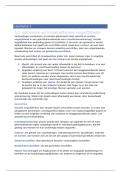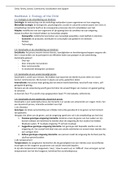Other
Sociological and Individualistic theories of criminality
- Module
- Criminological Theories
- Institution
- WJEC
In this document you will find information on all of the individualistic theories; Freud, Eysenck and Bandura as well as the strengths and weaknesses for each theory. You will also find the sociological theories of criminality as well; left and right realism, labelling theory, feminism and Marxism....
[Show more]







